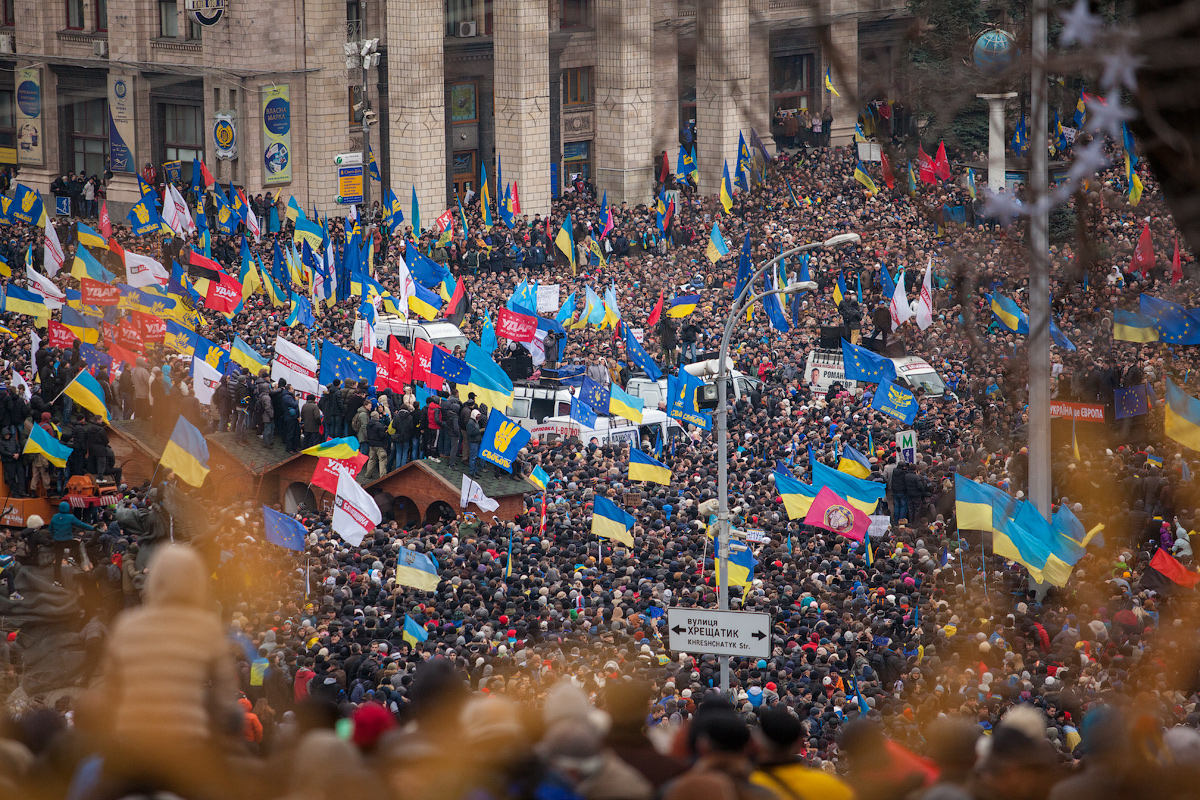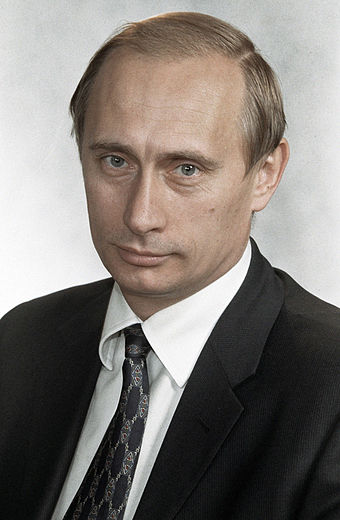It’s Time to Stand Against Putin
 With new developments coming in by the hour, the situation in Ukraine is moving extraordinarily quickly. While only days ago the prospect of a Russian incursion into the politically-unstable nation seemed utterly unthinkable, it is in fact what has come to pass. It’s time that the West stop referring to this act as an “intervention” or another ignorant euphemism and to call it what it really is: a hostile invasion of the sovereign territory of Ukraine by the Russian Federation.
With new developments coming in by the hour, the situation in Ukraine is moving extraordinarily quickly. While only days ago the prospect of a Russian incursion into the politically-unstable nation seemed utterly unthinkable, it is in fact what has come to pass. It’s time that the West stop referring to this act as an “intervention” or another ignorant euphemism and to call it what it really is: a hostile invasion of the sovereign territory of Ukraine by the Russian Federation.
The nuances of why Russia (or Putin, rather) has decided on this course of action are unimportant. While Russia has insidiously relied on disinformation through the usage of masked and unlabeled military forces and through orchestrated demonstrations, the alarm bells have begun to ring in the Baltic states. Poland, Latvia and Lithuania have recently invoked the fourth article of the NATO treaty calling for emergency consultation on the crisis. The Ukrainian military has been ordered to full readiness, and Russian naval vessels have reportedly left their harbor in Sevastopol to blockade Ukrainian coast guard and naval ships from leaving port.
This is grave news of the highest order. Almost silently, Putin has unilaterally redrawn the borders of Eastern Europe as he sees fit. Julia Ioffe’s thesis in her superb article in The New Republic, that pessimism rules the day in the Kremlin, further approaches the truth with every passing day. And the implications of this pessimism and redrawing of Ukrainian borders are completely unacceptable to the West. The Russian invasion of Ukraine directly threatens Baltic states like Poland, whose membership in the EU and NATO is firmly entrenched. And with the Duma having recently rubber-stamped Putin’s request for a military deployment on the whole of Ukraine for an “indefinite” period of time, this is a very real and direct threat.
The question, then, is how to respond. Undoubtedly, the hope is that diplomatic talks at the highest level among the EU commission, Russian Federation, U.N. Security Council and NATO breed some sort of settlement agreeable to all parties. And certainly, the recent announcement by the White House stating that the US will no longer be participating in the G8 preparatory meetings leading up to the June summit in Sochi are all positive first steps, but they are a drop in the bucket.
Just as Putin has demonstrated his seriousness to the West, Europe and the United States must stand resolutely, in total lock-step, against this brazenly aggressive move by Russia. On its own, the US can and should pass targeted sanctions against Russia, and the White House should also coach its leader to not wear jeans during a critical phone call in full view of the world stage. No action will be possible in the Security Council, given Russia’s presence on the body and the threat of its veto.
A tougher response is, given the gravity of the situation, undeniably necessary. Retired Admiral James Stavridis, the former supreme allied commander of NATO’s european forces, has written an excellent article on the responsibilities of NATO command in the present crisis, and I think that his calls for increased intelligence sharing, the movement of naval forces into the Black Sea, the readying of a quick reaction force and the drawing up of contingency plans are all excellent ways for the West to respond to Russia's actions. The United States must also prove to Russia that it has lost all of the international credibility that it has sought to build in recent years, by kicking it out of the alliance of the world’s wealthiest democracies: the G8.
No one wants to fight, and new information is rapidly pouring in, but the time for hand-wringing has come to an end. In the twenty-odd years since the end of the Cold War, the West has fought hard to expand its message of neo-liberal capitalism to states formerly under the iron grip of the Soviet Union. These states (Poland, Latvia, Lithuania, etc) have largely enjoyed unprecedented economic and political stability. The West cannot, in this instance, have its cake and eat it too. If we wish to enjoy these political and economic systems, we must defend them against clear and direct existential threats.
The coming days will shape the legacy of President Obama. Will he be weak and feckless (again) in the face of ruthless Russian maneuvering, or will he stand united with the West to oppose Putin’s retrograde Cold War maneuvering?

